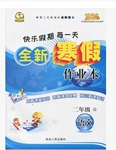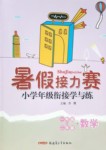题目内容
【题目】语法填空。
It was raining lightly when I【1】(arrive) in Yangshuo just before dawn. But I didn’t care. A few hours【2】, I’d been at home in Hong Kong, with 【3】(it) choking smog. Here, the air was clean and fresh, even with the rain.
I’d skipped nearby Guilin, a dream place for tourists seeking the limestone mountain tops and dark waters of the Li River【4】are pictured by artists in so many Chinese 【5】(painting). Instead, I ‘d head straight for Yangshuo. For those who fly to Guilin, it’s only an hour away【6】 car and offers all the scenery of the better-known city.
Yangshuo【7】(be) really beautiful. A study of travelers【8】(conduct) by the website TripAdvisor names Yangshuo as one of the top 10 destinations in the world. And the town is fast becoming a popular weekend destination for people in Asia. Abercrombie & Kent, a travel company in Hong Kong, says it【9】(regular) arranges quick getaways here for people【10】(live) in Shanghai and Hong Kong.
【答案】
【1】arrived
【2】before
【3】its
【4】which/that
【5】paintings
【6】by
【7】is
【8】conducted
【9】regularly
【10】living
【解析】
试题分析:本文是一篇记叙文。文章主要讲述了作者到中国阳朔游玩的经历和感受。
【1】arrived考查一般过去时。句意:就在天亮之前我到了阳朔,天空下着小雨。根据前后句时态可知用一般过去时。故填arrived。
【2】before考查介词。句意:几个小时前,我在香港家里。Before意为“在……之前”,注意不可以用ago。故填before。
【3】its考查形容词性物主代词。句意:带着窒息的烟雾。后面为名词,故用its。故填its。
【4】which/that考查定语从句。句意:漓江被许多艺术家所绘画。先行词为 Li River,在从句中作为主语,故填which/that。
【5】paintings 考查可数名词复数形式。句意:在如此多的中国绘画中。painting为可数名词,注意用复数形式。故填paintings。
【6】by考查短语。句意:乘汽车只需要 1 个小时。by car 乘汽车。故填by。
【7】is考查一般现在时。句意:阳朔真的很漂亮。表示形容一种客观现实的应用一般现在时表示,这里用一般现在时。故填is。
【8】conducted考查过去分词。句意:一项网站所进行的调查。过去分词作后置定语,表示被动关系。故填conducted。
【9】regularly考查副词。句意:定期为人们安排这里适合旅行的地方。修饰动词,用副词修饰。故填regularly。
【10】living考查现在分词。 句意:住在上海和香港的人们。现在分词作后置定语。故填living。

 桃李文化快乐暑假武汉出版社系列答案
桃李文化快乐暑假武汉出版社系列答案 优秀生快乐假期每一天全新寒假作业本系列答案
优秀生快乐假期每一天全新寒假作业本系列答案 暑假接力赛新疆青少年出版社系列答案
暑假接力赛新疆青少年出版社系列答案